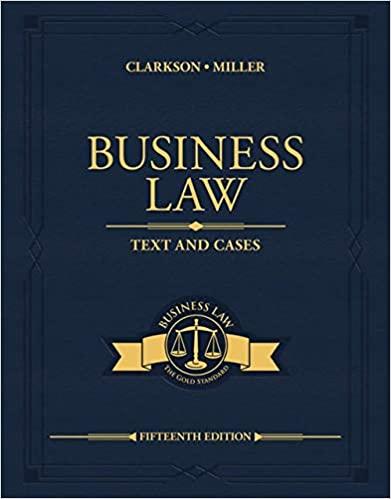Priscilla Dickman worked as a medical technologist at the University of Connecticut Health Center for twenty-eight years.
Question:
Priscilla Dickman worked as a medical technologist at the University of Connecticut Health Center for twenty-eight years. Early in her career at the Health Center, Dickman sustained a back injury while at work. The condition eventually worsened, causing her significant back pain and disability. Her physician ordered restrictions on her work duties for several years. Then Dickman’s supervisor received complaints that Dickman was getting personal phone calls and was frequently absent from her work area. Based on e-mails and other documents found on her work computer, it appeared that she had been running two side businesses (selling jewelry and providing travel agent services) while at work. The state investigated, and she was convicted of a civil ethics violation for engaging in “personal business for financial gain on state time utilizing state resources.” Separate investigations resulted in criminal convictions for forgery and the filing of an unrelated fraudulent insurance claim. Dickman “retired” from her job (after she obtained approval for disability retirement) and filed a claim with the state of Connecticut against the health center. She alleged that her former employer had initiated the investigations to harass her and force her to quit. She claimed that the Health Center was unlawfully retaliating against her for being disabled and being put on workplace restrictions. [ Dickman v. University of Connecticut Health Center, 162 Conn.App. 441, 132 A.3d 739 (2016)] ( See Making Ethical Business Decisions.)
(a) Assume that you are Dickman’s supervisor and have been informed that she is frequently away from her desk and often makes personal phone calls. The first step of using the IDDR method is inquiry, so you start asking questions. Several people tell you that that Dickman has offered to sell them jewelry. Others say she has offered to make travel arrangements for them. You have not spoken to Dickman directly about the complaints and are not sure if you should. You also know that the Health Center would need more evidence of wrongdoing to justify firing Dickman but are uncertain as to whether you can search her computer. Should you report your findings to management? Is there any ethical problem involved in investigating and possibly firing a long-term employee? Is it fair to terminate an employee who is under disability restrictions? How would you frame the ethical dilemma that the Health Center faced in this case, and who are the stakeholders? What ethical theories would you use to guide your decision?
(b) Now suppose that you are Dickman. You have been a medical technologist for a long time but now experience severe back pain while at your desk at the Health Center. You find that you have less pain if you get up and move around during the day, rather than just sitting. That is why you are often away from your desk. You know that you will not be able to do this job much longer, and that is why you recently started a jewelry business and began providing travel services. Sure, you have made a few personal phone calls related to those businesses while at the Health Center, but other employees make personal calls, and they have not been fired. You feel that the Health Center’s investigation was intended to force you to quit because you are disabled and cannot perform the tasks that you used to perform. Using the inquiry portion of the IDDR method, how might you frame the ethical issue you face, and who are the stakeholders? What ethical principles can help you analyze the problem thoroughly?
Step by Step Answer:

Business Law Text And Cases
ISBN: 9780357129630
15th Edition
Authors: Kenneth W. Clarkson, Roger LeRoy Miller





